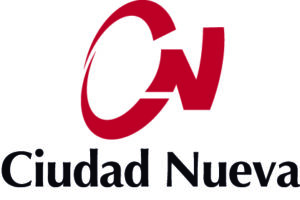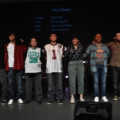
Workshop
Three million faces. The illness may be rare, but the people are not.
By María Teresa Ausín
Courtesy of Ciudad Nueva, we publish the story of Alberto Peñafiel, one of the young people from Spain’s Mosaic Group.
About 6% of Spaniards suffer from a rare disease, one that hardly anyone knows or remembers the name of, but which leaves its mark on the lives of those who suffer from it. It is just a tiny percentage of the population, but has three million human faces in our country. There are many patients who wait on an average of four years for a diagnosis if they are lucky, because it can take up to ten years (20% of cases), according to the 2017 Study on the Social Situation and Health Needs of People with Rare Diseases in Spain (ENSERIo Study). In the meantime, the patient receives no support or treatment (29.37% of cases), or receives inadequate treatment, or the illness worsens. For this reason, for the past ten years ten years, the World Day of Rare Diseases has been celebrated during the month of February: to remind us that they are there and, even though they are few, they still count.
There are around 7,000 rare diseases in the world today and, unfortunately, a large percentage of those affected need support that they don’t always receive. According to the ENSERIO study, more than 80% have a certificate of disability and many need help with their daily activities: home life (52.98% of cases), travel (42.70% of cases) mobility (40.99% of cases) and only 12.81% do not need any support.
Fortunately, there are always cases that are illuminating and can help many people to be more aware of this situation and others, to know that there is hope. One of them is Alberto Peñafiel, from Elche, Spain. He is 26 years old and works as a developer and systems analyst in a company in Alicante. He is passionate about music, travel, cinema and technology. When he was only two years old, he was diagnosed with a little-known cancer: retinoblastoma. It is a malignant tumor that appears in childhood and affects the tissues of the retina of the eye. In his case, the left one. So, if they wanted to save him there was only one option, to apply an eye prosthesis that would change his life…
Since having my first ocular prosthesis, I have experienced many different things. Some of those things happened during my childhood and were very, very hard: misunderstanding and loneliness . . . But I’ve always been very open, I’ve had good friends and the great privilege of growing up in an amazing, close-knit family that has always been there for me. Together they helped me move forward and overcome a difficult situation to live with. That’s why, despite having this handicap, I managed to achieve everything that I set out to do. Music, on the other hand, has accompanied me throughout my life and has helped me to overcome many barriers. An example of this passion that I live in my daily life is my participation in the Mosaico Group, made up of about thirty young people from different backgrounds and cities of Spain. It is a project that works for universal values such as peace, fraternity and dialogue among different cultures. The hardest thing about having a rare disease is that you don’t know anyone who has been through the same thing. Am I the only one, I was wondering when I was a kid. But a year ago I got an unexpected gift. Without searching for it, surfing the net, I came across the AER Association (Spanish Association of Retinoblastoma), of which today I am very grateful to be a member. I met people there who understand pain because they have experienced it. I saw how everyone faces life and I encountered other backgrounds, people my age whom I can talk to, new families who arrive frightened and then find the support of others who have already been through it… and now I see how much I needed it. Because there is a way out, there is a cure. But there is also a lot of work to be done to show it.
With the association we do webinars with specialists, fundraising campaigns, and now we’re launching a project that excites me a lot: making a documentary video to show the more human side of this disease. Because, unfortunately, this type of cancer continues to live in the shadows, which is why it is so important to continue looking for how to overcome this disease without having to lose your sight or worse, your life.
In any case, I can only be grateful. Without this disease, which has always accompanied me, I would not be the person I am now. It showed me the more human side of life, the importance of appreciating who we are. And once I accepted my pathology (it was not always easy to accept this pain), I discovered the path I want to follow – helping others”.






